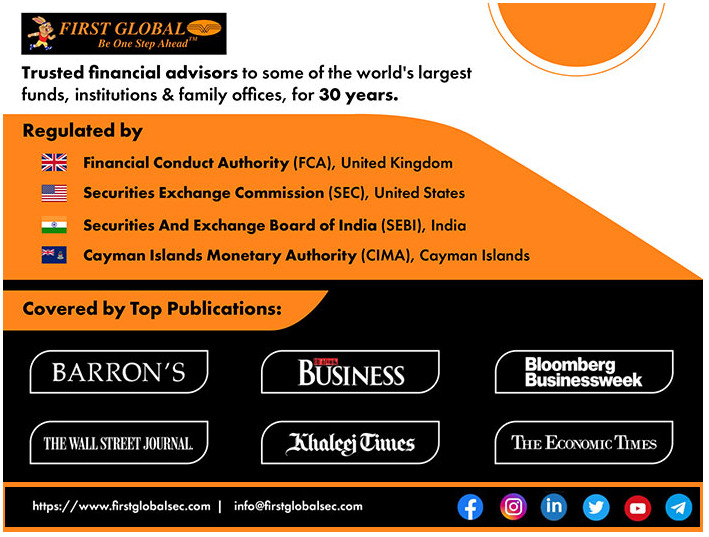I made a presentation at the Morningstar conference in 2019 which created quite a ripple amongst investors.
The theme of my presentation was that Indian equities had been an extremely disappointing asset class over the last 10 5, 3 and 1 year time frames.
Starting from 2010, the Dollar index (Dollex) has given negative Returns 6% till date.
And the data for 2019 has been eye-popping.
Take a Look at this table of 2019 stock market performances in US dollar terms.
|
Country |
2019 in USD |
|
RUSSIA$ |
44.9% |
|
NDX |
38.0% |
|
SPX |
28.8% |
|
SMI$ |
28.1% |
|
BRAZIL$ |
26.9% |
|
TAIWAN$ |
25.9% |
|
ITALY$ |
25.7% |
|
CAC$ |
23.9% |
|
DAXI$ |
23.0% |
|
AEX$ |
21.5% |
|
CHINA$ |
20.8% |
|
NIKKEI$ |
19.8% |
|
BELGIEN$ |
19.6% |
|
AUSTRALIAN$ |
18.1% |
|
FTSE$ |
16.7% |
|
SAFRICA$ |
11.9% |
|
TURKEY$ |
11.5% |
|
SET$ |
9.7% |
|
HK$ |
9.7% |
|
IBEX$ |
9.6% |
|
NIFTY $ |
9.5% |
Even a so-called basket case market like Turkey did better than India.
Leave equities: even Global fixed income gave far higher returns than Indian equities!
These data really set the cat among the pigeons. Implanted the seed in the minds of emerging market investors including Indian investors that having a single country, single currency, single asset risk (SCCARS) was simply not wise for long term wealth building with scientific risk management.
And then many people then rushed headlong into diversifying there Holdings internationally.
All with disastrous consequences!
Global markets, US in particular, in fact fell more than the Indian markets.
So the question on everybody is mind is: where did they go wrong in their quest to diversify globally?
The answers to this are not easy.
Let us start with the simpler answer: International diversification is a very very difficult, complicated endeavor, and practically, most ways to do this are sub optimal, because in reality, they do not give any meaningful diversification beyond just a currency factor.
Don't go for the easy solutions here because there are no easy solutions.
The complicated part is how should therefore international diversification of investments be done?
First let us look at what are the typical routes available for Indian investors to invest globally.
Feeder Funds
The simplest method is to buy Feeder funds of various international funds, available via local fund houses.
These funds give you exposure usually to single markets or even to single narrow indexes/ sectors such as NASDAQ/ Technology.
Problems with Feeder Funds
They do not really give you much diversification because they give one additional market/ region, generally speaking. This does not solve the problem of getting away from single SCCARS.
The feeder funds are also fairly costly with their expense ratios ranging between 2 and 3%. This, frankly, is absolutely unacceptably high.
These expense ratios are so high because the Domestic fund houses that offers these feeder funds get an additional layer of Management field for doing precisely nothing! Talk about getting a free ride on investor money!
Further, there is no accountability that the domestic fund house provider of the feeder fund has towards investors and investment performance, since the Investment Management function has been outsourced to someone sitting in New York or London.
Who do you go and catch if there is a problem? Because the domestic fund house that is providing this feeder fund is nothing more than a glorified intermediary with zero knowledge of the market in which the feeder fund is going to be investing into.
Buying International Exchange Traded Funds (ETFs)
This is the second method in which a domestic investor can get International exposure.
The only thing that these instruments have going for them is that they are lower cost as compared to feeder funds.
However how does the investor decide which ETF to buy? Which markets to invest in through these ETFs? How to balance risk and reward? How to decide on what is a perfect portfolio construction of these instruments, across markets and asset classes?
ETFs simply don't work for all but the most sophisticated investors.
How to do international diversification, the Right Way
None of the methods outlined above give proper International diversification because they have their own unique problems.
The holy grail of investing is correct top-down asset allocation. Without getting that right, just going and buying a feeder fund or exchange traded fund will give sub optimal returns over the long run because there is no single way that this feeder funds or ETFs can give you Global top-down asset allocation in a tactical , dynamic manner.
Asset classes go in and out of favour.
Nothing is permanent about any particular asset class.
For example emerging markets did very well from 2004 to 2007.
Therefore all feeder funds guided you to invest in emerging market funds.
Results were disastrous from 2008 onwards for Emerging Market equities.
And just in the last 2 months one can see how disastrous going long on US technology/ NASDAQ, has been where most stocks are down 40-50% within one month.
The right way to do Global diversification is to get your top-down asset allocation right and towards this, the fund manager that you select must be capable of giving you this advice and managing your investments on this basis so that you have a well constructed portfolio of international equities, International fixed income as well as commodities.
Even more importantly, your investment manager must have the skills to manage these allocations dynamically.
If you do not get proper top-down asset allocation right, you are destined to suffer the vagaries of markets.
And last but most important, get expertise that is available locally for you to discuss with and plan, rather than the investment Management process being outsourced to some faceless set of people sitting thousands of miles away.
From the desk of
Devina Mehra
Trusted Financial Advisors to some of the world's largest Funds, Institutions & Family Offices, for 30 years
If you want any help at all in your wealth creation journey, in managing your Investments, just drop us a line via this link and we will be right by your side, super quick!
Or WhatsApp us on +91 8850169753
Chat soon!
(A version of this article was first published in Moneycontrol)


Economists Think Dollar's Fall May Explain the Recent ‘Rally’ by Steve Liesman
Einstein taught us about relativity in nature. Now come Devina Mehra and Shankar Sharma of First Global to teach us about relativity in financial markets -- and raise some serious questions about just what is driving stock prices.

First Global reports are quite credible and, on occasion, more than that.
What prompts this mention is Intel's earnings report and the fact that First Global has had a pretty good bead on the company and its stock.

AMD up again following First Global upgrade to ‘buy’ (AMD) By Tomi Kilgore
Analyst Kuldeep Koul at First Global upgraded Advanced Micro Devices (AMD) to "buy" from "outperform," given the "exceptional traction" that the chipmaker's Opteron line of processors has been able to get.

Baidu Climbs on First Global’s ‘Outperform’ Outlook
Baidu Inc., the operator of China’s most-used Internet search engine, rose to the highest price in two weeks after First Global rated the shares “outperform? in new coverage.

Personality counts: Walmart's frugal, but Target charms
"It's better to take a slight hit on [profit] margins and keep on moving and inventing," says First Global Securities. And at least for now, Target is inventing in a way that appeals to consumers with money to spend.

Dead Batteries
At 11 times trailing earnings, Energizer is cheaper; Gillette's multiple is 25. But cheaper doesn't mean better, says First Global.

Bipinchandra Dugam @bipinchandra90
@devinamehra @firtglobalsec
invested in both GFF-GTS and Super I50. Thank you very much for such wonderful investing experience with completely new approach. In my 15years of investing first product I felt which close to what customer want.

Shishir Kapadia @shishirkapadia1
@firstglobalsec @devinamehra
by far you are the best, I have not come across transparency, acumen, global expertise, exposure, protection of capital, delivering return from any fund/ fund managers. Invested very small size in 3 products will keep on increasing it over the period

Piyush Bhargava @PiyushB88762654
@devinamehra @firstglobalsec
Thanks you team FG specially Devina, my investment doubled in less than 3 years in SDPB As a investors & PMS distributor of your product looking to have a long-term relationship with the company.
@KarmathNaveen the person with whom I always interact

Sumeet Goel @GoelSumeet
Very happy & relaxed to be invested with first global pms

Shishir Kapadia@shishirkapadia1
Congratulations on super performance, above all transparency and systematic process are unmatchable.
One must opt this, if person consider him/her self as an investor. Very happy to be part of this since invested. FG has managed worst year (ie 2022) so efficiently and skillfully.

SY @SachinY95185924
With so much of volatility in the market, risk management is very important part & considering that FG is doing awesome work!!! Kudos to you Chief

Amit Shukla @amitTalksHere
Truly outstanding. As a retail subscriber to #fghum #smallcase, I can vouch for the Nifty beating returns (8% vs 3%) in last 1 year. Keep up the awesome work @firstglobalsec
We can load above testimonials on site as a scroller, and just below that we can add a section for compliments . Below tweets are comments and praises are related to our content, performance and some our direct compliments to you.

ADIT PATEL @ADITPAT11226924
Good team...
Special mention @KarmathNaveen .. he is soo helpful anytime of the day or night..

Hindustani @highmettle
Bought Peace with FG-Hum.Moving all funds from DIY investing to well managed and diversified PF at low cost.
It has doubled almost, excellent pick.Every small investor must invest in her FG-HUM Smallcase.

Suresh Nair @Suresh_Nair_23
I have 8 small cases and your has been the most rewarding ones .. thank you Devina.

Sayed Masood @SayedM375
There is absolutely no doubt that she is one of the best investors of India in modern times but more importantly, she shares the most sincere and sane advice with retail investors.

SY @SachinY95185924
Wow Superb Returns🔥 Congratulations Chief for being Number 1 among all PMS!!!
You are one of the sharpest mind in Global Stock Market

AnupamM @moitraanupam
Congratulations Devina, results talk in itself!

Abhishek @simplyabhi21
Congratulations ma’am @devinamehra ! The consistency you have in maintaining the top rank position is outstanding! 👏

Mihir Shah @Mihir41Shah
We are learning More about markets (& Life ) thanks to U than we learnt in our Professional courses.A BIg Thank You, Wish all get Teachers Like You!!

Sumit Sharma @MediaSumit
"The ability to be comfortable with being outside consensus is a superpower in investing...and in life." Devina ji hits the nail on its head!

Majid Ahamed @MajidAhamed1
Congratulations @devinamehra mam! All the best for long term returns as well.

Vinay Kumar @VinayKu05949123
This is the wonderful session I have ever attended till date. One of the most fruitful hour of my life. Devina madam, ur clarity on financial mkts is simply superb.The way u portray the facts supported by "data" about stock mkts is really astonishing.I will listen again.Thanks.

VIJAY @drippingashes
I loved to read your journey, insight and philosophy. It's a pleasure to read and know of your takes on market and life.

MNC🏹 @Focus_SME
Check & follow @devinamehra's timeline for lots of post debunking such rosy stories. Also, she gives amazing 🤩 sector directions/hints.

KLN Murthy @KLNMurthy2016
Good actionable insights, great article!

Suresh Nair @gkumarsuresh
Devina Madam is simply terrific... good knowledge, straight and simple thinking.
Very difficult to emulate such traits. I listen her past interviews from youtube.
Respect...!!!!

DD @AliensDelight
One of the brightest minds in the world of finance :)

Radhakrishnan Chonat @RCxNair
📣 Calling all investors! Just had an incredible interview with @devinamehra, Chairperson and MD of First Global. We discussed the importance of global diversification, effective asset allocation, and the risks of sitting on the sidelines. Trust me, you don't want to miss this!

siddarthmohta @siddarthmohta
Excellent performance. Flexibility is the key as you have mentioned it earlier also. Cannot have finite rules for infinite mkt opportunities.

Boom (বুম)@Booombaastic
To be honest, the insights which Devina madam brings in is very enriching..have learnt a lot from them...

Himanssh Kukreja @Himansh02428907
One of the most accurate analysts :)
I always look forward to you interviews mam

Abhijeet Deshpande @AbhijeetD2018
Madam, It is always a treat to read your insight, not only on business but on other topics also!!

Dada.AI @dada_on_twit
Thanks for this wisdom ma'am. Always love hearing your thoughts on everything equity. :-)

adil @zinndadil
Excellent points!
Can clearly feel this thread is a product of marination of many books and years of experience. 👍

Kamal thakur @Kamalgt10
Superb !!
Your knowledge, analysis & articulation is simply great 👍

Tanay @Tanay36232730
Follower on Twitter and Subsciber on YouTube of First Global, really helping me in my investment desicion. Thanks
Copyright 2019, All Rights Reserved. Developed By : Hvantage Technologies Inc. Maintain By : Aarav Infotech